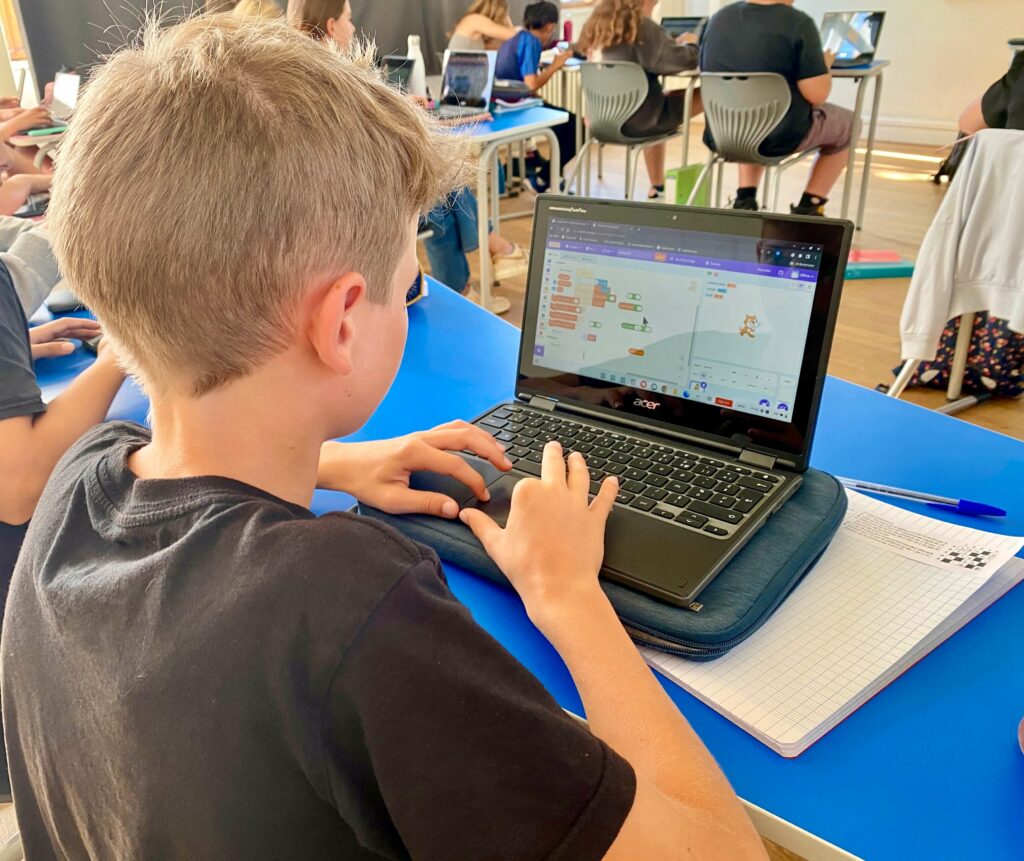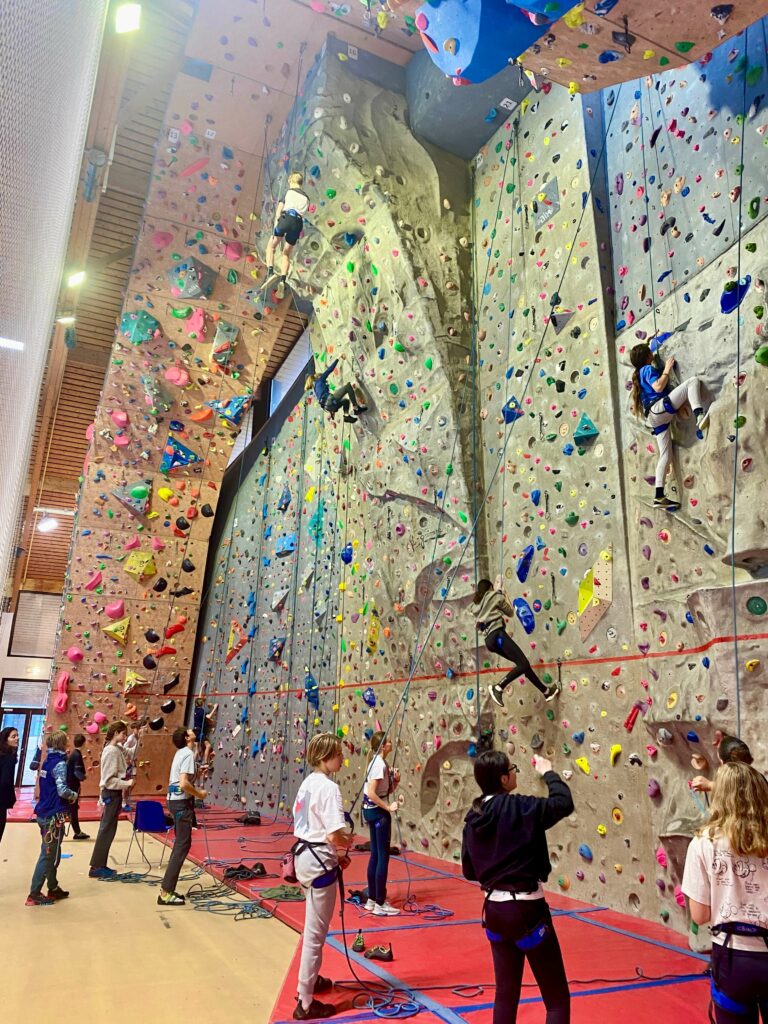More on
bilingual education
There are many advantages to making this choice. A growing body of precise research, particularly in the field of neuroscience, has demonstrated the points set out below. What’s more, the judicious choice of English for students who speak French is well established. We also note that a child who has already learned a second language will find it easier to learn a third, which opens up interesting prospects. That’s why we offer a third modern language (Spanish or German) right from the start of secondary school, and later on, students can go even further, by choosing a fourth language in high school.
Why choose bilingual education?
Successful experiences across the Atlantic
Our philosophy is inspired by the Canadian model of bilingualism: children are exposed to a second language from an early age (2 to 3 years), learn its music, repeat it and experience it without inhibition.
Learning takes place through experience and the relationship with the teacher. Speaking English becomes natural, because the pupil doesn’t start by learning English, but learns in English. Later, during elementary school, they develop and consolidate their skills through more academic learning of the English language, both written and spoken.
The benefits of bilingual schooling
Bilingualism has a positive effect on intellectual development. Scientific research has revealed more numerous and more complex connections in the brain.
It develops abstraction, which leads to better performance in mathematics and logical reasoning.
A bilingual education puts in place a more flexible way of thinking, and develops a system of creative and inventive reflection, leading them to think differently.
Bilingualism gives the child a greater capacity to understand sensory information and makes him or her more receptive.
Bilingual children are better able to understand their own language. An expanded vocabulary leads to the creation of more linguistic associations, a broader vision and global understanding.
Other advantages...
-
A springboard to multilingualism: bilingualism leads to multilingualism, because those who learn to listen to and speak two languages at an early age are more likely to learn a third, or even a fourth, before they leave school.
-
The development of values such as curiosity about other cultures and traditions, tolerance and empathy.
-
Language learning confronts children with plurality, with a multiplicity of points of view, and gives them an open-mindedness that, at the same time, forges their own identity, “decentration” in sociological terms.
-
Brain plasticity: for the vast majority of pupils, learning a second language at an early age does not hinder the learning of their mother tongue. In fact, results in French at the end of bilingual schooling are generally as good as or even better than at the end of monolingual schooling. We're talking about the plasticity of the brain, which has the capacity to adapt to several languages and to non-standard learning!
-
Communication and empathy: communication is the first step towards appreciating and understanding other cultures. Bilingual people who are able to converse in different languages become more self-confident and better able to understand others.
-
Access to the world of work: bilingualism increases your chances of finding a job in many fields where knowledge of another language is a real asset.
Books on bilingualism
-
“Pour une éducation bilingue”
Guide de survie à l'usage des petits européens by Anna Lietti, Editions Payot. Translation of the book's summary, based on www.evene.fr: In the age of European mobility, giving your children a second language is a necessity. Yet foreign language teaching in state schools generally produces disappointing results, and bilingual schools, where languages are really taught, are still the exception. Is bilingualism scary? Is there a right age to start learning a second language? Do you have to be particularly “gifted”?
-
"L'enfant aux deux langues”
by Claude Hagège, Editions Odile Jacob. Translation of the book's summary, based on www.alapage.com: What is the right age to start teaching a second language? Which intellectual faculties does bilingualism facilitate? What is the comparative effectiveness of language learning in early life and in adulthood? When do we forget one of our two languages, especially our mother tongue? The French are convinced that they have little talent for languages, whereas anyone can become perfectly bilingual if the right conditions are created.
-
The Bilingual Edge: The Ultimate Guide to Why, When and How
By Kendall King PhD, Alison Mackey, PhD.
Answers to questions about immersion and early language learning
-
The benefits of bilingual education
-
The Bilingual Advantage (New York Times - 2011)
-
Why Bilinguals Are Smarter (New York Times - March 2012)
-
Preschool is the best time to learn languages! Toddler brain scan gives language insight.
-
Citizens of the World: The Multilingual Child and Adult: Edwin Gerard at TEDxCulverCity (Published July 2013)
-
Learning languages ‘boosts brain’, BBC news (October 13, 2014)
-
Bilingualism good for the brain, researchers say, By Amina Khan, Los Angeles Times (February 2011)
-
Article on the stages of learning in a bilingual environment: National Association for language development





